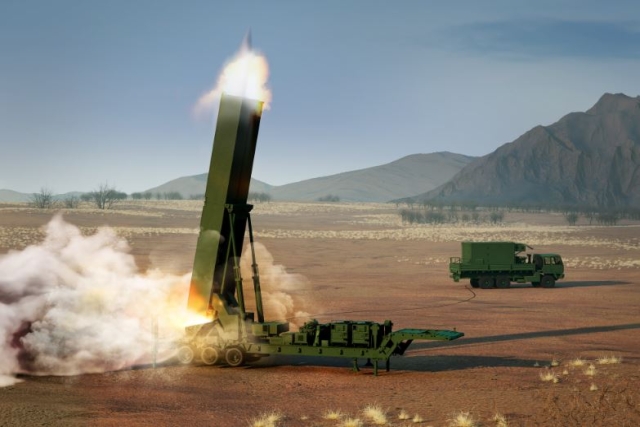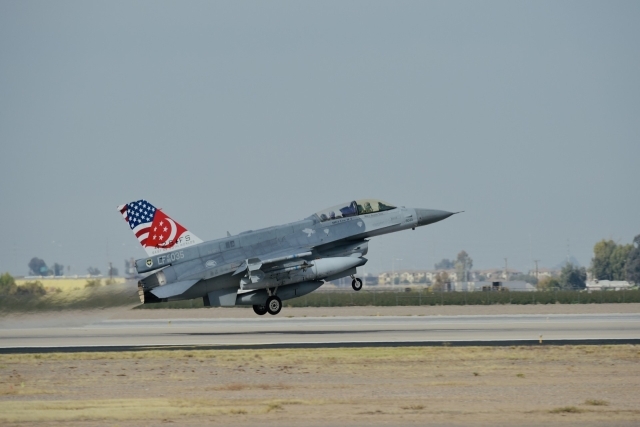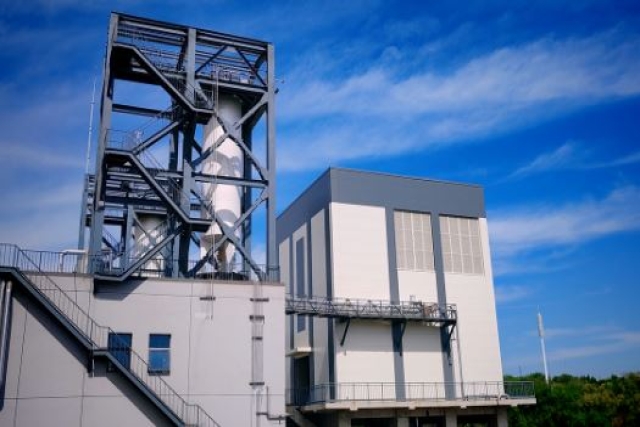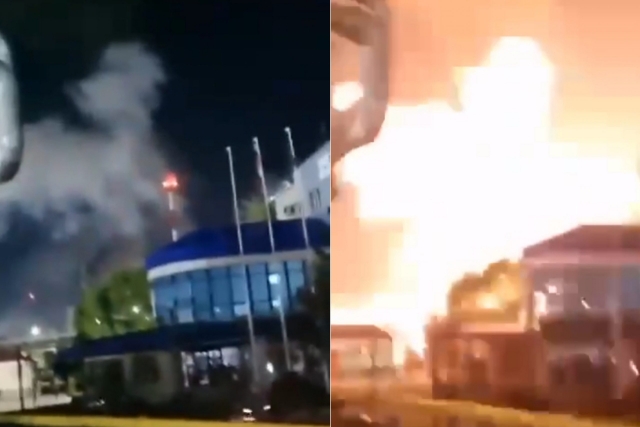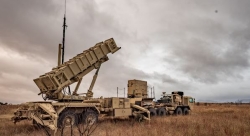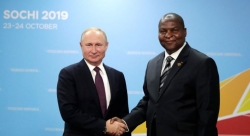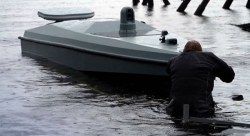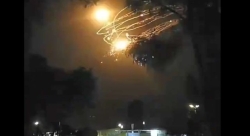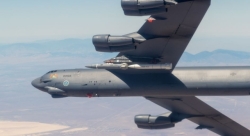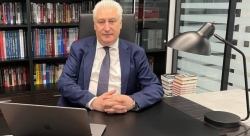Foreign aircraft manufacturers reluctant to honor warranty unless consumables are sourced from them

Mr. J. R. Nanda
Avi Oil, an Indian company especially set up to avoid foreign dependence on aviation lubricants is finding itself at the receiving end of a new arm-twisting tactic by some foreign manufacturers of military aircraft and engines who are insisting that unless consumables such as aviation lubricants are sourced from them , the aircraft engine warranty would not be honoured. J.R. Nanda, the CEO of Avi-Oil, in an interview to defenseworld.net, discussed the threat to India from complete dependence upon foreign manufacturers for a critical consumable such as aero engine oil.
DW : How serious is this threat of complete dependence upon foreign manufacturers of aircraft and engines for aircraft lubricants?
J R Nanda: We had a situation during the 1971 conflict when some Indian aircraft had to be grounded because the original equipment manufacturer (OEM) had ceased supply of critical lubricants. The same situation could be repeated in future as we seem to be headed towards a scary scenario for all the major new inductions planned over the next 10 years, as we are not conducting timely negotiations with the OEMs that aircraft lubricants necessary for their operation would be supplied from India. For want of a can of oil worth Rs.5000, a minuscule cost compared to the aircraft cost, your entire fleet can be grounded as any aircraft simply cannot fly without lubricants! Political equations change, and if the country of origin of the aircraft gets inimical with India, all it has to do is stop lubricants supply and your fighter fleet is rendered inoperable.
DW : Can you please elaborate on what you mean by saying that we are not conducting timely negotiations with OEMs on lubricants?
J R Nanda: The process of selecting indigenous lubricants should begin while conducting contract negotiations itself. Avi Oil usually contacts the aircraft manufacturers through the IAF to get its lubricants certified, so that by the time the aircraft is inducted into the IAF, our lubricants have all the necessary approvals both from the manufacturer as well as the Indian certification agency such as the Centre for Military Airworthiness and Certification (CEMILAC). However, in the case of some recent acquisitions, such as the Lockheed Martin C130J Hercules, this has not happened with the result that the aircraft are coming with a 3 years supply of consumables including lubricants. Similarly with the impending purchase of the Boeing C-17, indigenous lubricants do not seem to have been a part of the contract negotiations. In the case of the MMRCA, we have contacted some of the bidders but not all of them. We don’t know who will win the contract but we have to be prepared. Similarly in the case of some potential helicopter purchases, we have not still negotiated the supply of important consumables such as lubricants.
DW : Where do you think this is leading up to. What could happen if you don’t conduct timely negotiations and what is your suggestion to remedy the situation.
J R Nanda: If you wait until the contract has been signed, then the vendor will not bother to listen to you. He will try to force his consumables and spare parts on you as much as possible. The best time to conduct negotiations is before vendor selection. Since we have no hold over vendors of the aircraft being planned to be purchased, we cannot stop them from insisting on the use of their own consumables. We are simply again building dependency upon foreign vendors for something we can manufacture right here in India. We can produce the exact grade of oil required for any aircraft or helicopter requirement. To remedy the situation we should include lubricants under the offsets policy so that, if necessary, foreign vendors can collaborate with Indian lubricant manufacturers to modify, evaluate and approve their lubricants. To give you another example, India has its indigenously developed LCA aircraft for which the GE F414 engine has been selected for the second generation LCA II. We would like to start the approval process now itself so that by the time the aircraft is inducted, our lubricants are qualified to be used in it. For some reason, if the LCA II engine manufacturer (GE) delays the process, then we will have a peculiar situation of a totally indigenous aircraft dependent for operation upon a foreign lubricant. Will this not be an absurd situation?
DW : We hear that you are having some issues regarding lubricants for Russian origin aircraft.
J R Nanda: We have been supplying lubricants for Russian origin aircraft such as the MiG series, the AN 32 and the Tupolev 142M for decades and now and all of a sudden we learn that the OEM will not honor warranty unless the lubricant is procured from their country. Our lubricants for these aircraft have been approved by CEMILAC. They have worked to the user’s satisfaction for the past many years. And now we are told that our oil, though it is of the exact specifications of what is being imported from Russia, will not be accepted. Tenders have been issued stating only such oil as originating from Russia will be accepted. Also, the foreign suppliers are not required to obtain CEMILAC approval and their products are not subject to inspection by the Director General Aeronautical Quality Assurance (DGAQA).
DW : Why is CEMILAC approval and DGAQA inspection not made mandatory for foreign manufacturers?
J R Nanda: You have to address this question to the requisite authorities in the Ministry of Defence. All I can say is that these are mandatory requirements to ensure that what is supplied to the defence forces is quality airworthy and meets the quality standards. Merely accepting the product on a batch certificate from the foreign manufacturer is no absolute guarantee of quality. While CEMILAC and DGAQA certifications are being waived for international suppliers, the same continues to be mandatory for Indian suppliers such as Avi Oil. If we try to supply oil to any foreign country, they will first insist that we obtain quality certifications from their in-country inspection authorities, even if we have certification from the country of origin. Since it has become easy for international suppliers to sell military lubricants in India, we are seeing a proliferation of agents of these suppliers. Tenders for lubricant supply are being issued to traders who are not even registered with DGAQA. Where is the level playing field as stipulated in the DPM 2009?
DW : Does this mean that you have lost business in the recent past?
J R Nanda: Yes of course. Last year Avi Oil has lost business of 120 tonnes of lubricant, Turbonycoil 306 for the A N-32 aircraft simply because our oil is disqualified, despite it having provided satisfactory performance for ten years and CEMILAC having renewed its approval till 2015. Similarly, our product Turbonycoil 312 is analogous to the Russian SM 11.5 lubricant. The Indian Navy, in recent tenders has clearly specified that only SM 11.5 lubricant, ex-Russia is acceptable which means we cannot even bid. We have also lost out on the supply of 60 tonnes of a lubricant in 2010 for the SU-30MKI aircraft. All this, despite having approvals and certifications for our products from CEMILAC. The efforts in establishing Avi Oil for self-reliance are just being withered away, and we are getting back to square one- the exact scenario during the 1965 and 1971 conflicts, who says “history does not repeat itself”.

